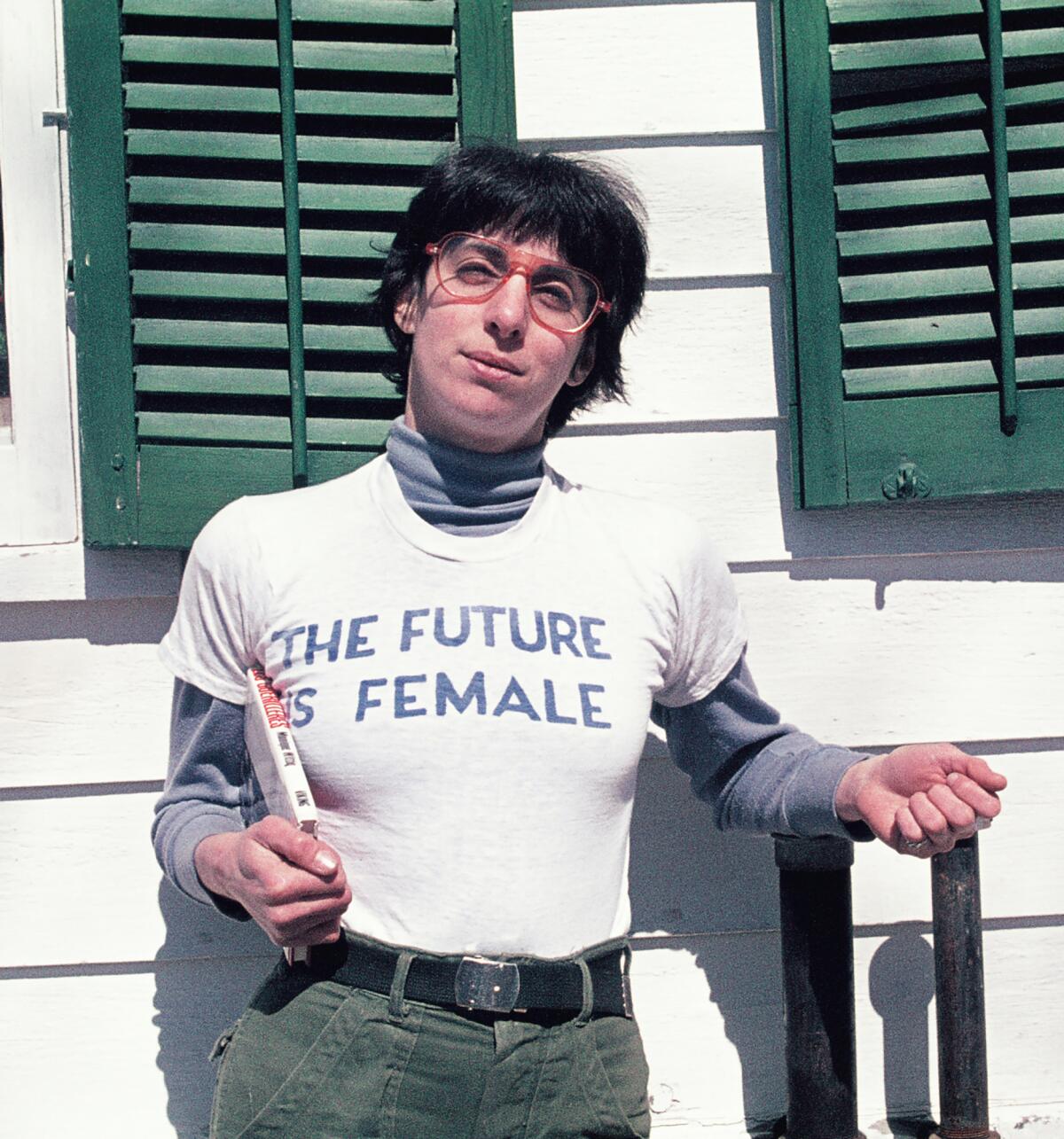Alix Dobkin, Lavender Jane musician and pioneering lesbian activist, dies

- Share via
Alix Dobkin, the lesbian singer and feminist activist who appeared in an iconic and recently resurgent 1975 photo wearing a T-shirt that read “The Future is Female,” has died at her home in Woodstock, N.Y. She was 80.
An early leader in the music scene for lesbians and women, she died from a brain aneurysm and stroke, said Liza Cowan, her friend and former partner.
“Everything that she did was about being a public lesbian in the world,” said Cowan, who also took the striking photo.
In 1973, Dobkin formed the group Lavender Jane with musician Kay Gardner. With an all-women team of musicians, engineers and vinyl pressers, they recorded the album “Lavender Jane Loves Women” — the first ever to be entirely produced by women, Cowan said.
Dobkin had been performing in the folk music scene in Philadelphia and New York in the 1960s, where she mingled with musicians such as Bob Dylan, according to her 2009 memoir, “My Red Blood.” The title references her parents’ and her own membership in the Communist party.
When she came out as a lesbian, she forged ahead musically as an early leader and then mainstay of Women’s Music, a genre made by, for and about women. The genre fostered a whole network of publications, recording labels, venues and festivals starting in the 1970s.
“She became an iconic, kind of bigger-than-life figure for women who identified as lesbians,” said Eileen M. Hayes, author of the book “Songs in Black and Lavender,” a history of Black women’s involvement in the movement.
Dobkin sang songs like “Lesbian Code,” which playfully lists the many ways women interested in women identify one another. She also had a version of the alphabet song that begins, “A, you’re an Amazon.” Dobkin, who was Jewish, often played Yiddish songs during her performances and told stories she had heard growing up in Philadelphia.
She often performed for all-women audiences. An undated flier advertising one of Dobkin’s shows explained all-women concerts offered women the opportunity “to come together to develop our culture as part of the process of taking control of our lives.” It asked men who supported the struggle against sexism not to attend.
A friend and collaborator, Kathy Munzer, produced shows for lesbians in Chicago for more than 30 years and called Dobkin “The Head Lesbian,” saying in a Facebook post that she inspired others to take pride in who they were.
In the weeks before her death, Dobkin’s family kept a public diary about her health that drew thousands of comments from friends and fans. They wrote of how Dobkin’s music provided them comfort, guidance and community.
“And still you bring us together again, wonderous woman you are!!!” read one comment.
Before coming out as a lesbian, Dobkin married Sam Hood, whose father owned a folk music venue in New York where she had played. Dobkin is survived by their daughter, Adrian, and three grandchildren.
As a historian and witness to the women’s movement, Hayes said she was grateful to have had Dobkin’s musical and political leadership.
“I think that the death of Alix Dobkin just reminds us of how far we’ve come in terms of LGBTQ right to life,” she said. “And right to life as in the right to be.”
More to Read
Start your day right
Sign up for Essential California for the L.A. Times biggest news, features and recommendations in your inbox six days a week.
You may occasionally receive promotional content from the Los Angeles Times.






